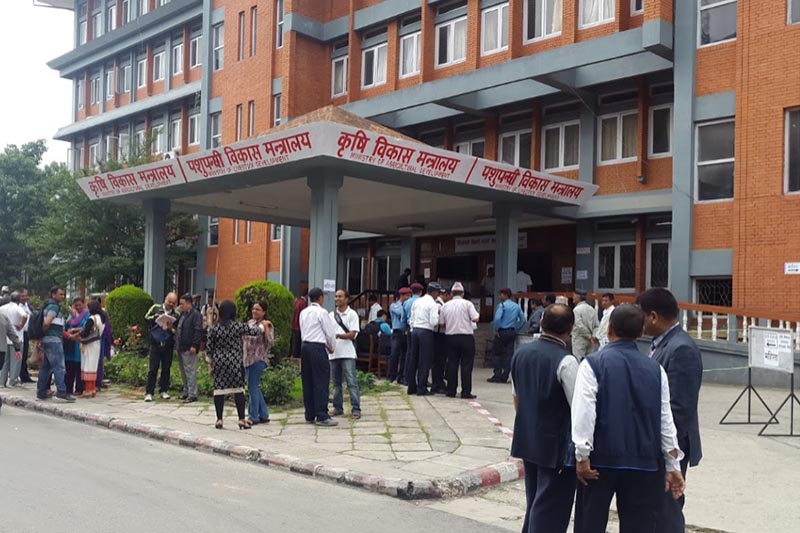Constructing chemical fertiliser plant possible
KATHMANDU, OCTOBER 16
The task force formed by the Ministry of Agriculture and Livestock Development (MoALD) has concluded that it is possible to build a chemical fertiliser factory in Nepal.
The task force formed by the ministry under the coordination of MoALD Secretary Rajendra Prasad Bhari submitted its preliminary study report to Agriculture Minister Ghanshyam Bhusal on Thursday. The report states that the construction of a chemical fertiliser plant in the country is possible, however more technical details need to be studied.
“This is just a preliminary report and an in-depth study on the technical aspects of the plant is required,” said Hari Bahadur KC, spokesperson for MoALD. The report has suggested that it would be appropriate to adopt either biomass gasification or hybrid technology using hydropower to set up a urea plant immediately.
The task force has estimated that the electricity tariff will be low due to adequate production of hydroelectricity in Nepal and said that the technology is suitable.
“In recent years Nepal has been generating excessive electricity and we can use it to operate the plant,” he said, adding, “Looking at the current status the report has recommended the government to conduct a thorough study on the utilisation of electricity to operate the plant.”
Prior to this, Investment Board Nepal and Japan International Cooperation Agency had also conducted a study on the feasibility of building a fertiliser factory in Nepal. However, both their suggestions were costly and not relevant to the current situation. Thus, MoALD has again conducted a fresh study, KC said.
Furthermore, the report has recommended the ministry to hold discussions with technical experts of the relevant subject for further study on the selection of a suitable technology for a urea fertiliser production unit and related economic analysis. While receiving the report, Minister Bhusal made a commitment to conclude the issue of building a chemical fertiliser factory in the country as soon as possible.
“Utilising new technologies we will be building the factory aiming at ending the fertiliser-shortage issue of the country,” he said.
Every year, farmers have been facing a problem of unavailability of fertilisers and each year the government has been failing in providing fertilisers on time due to several reasons. This year also the government has failed to bring fertilisers on time citing the impact of the COVID-19 pandemic.
The government has also taken action against two contractor companies who had failed to bring the fertilisers on time.
Amid this, the government has also borrowed 50,000 tonnes of fertilisers from Bangladesh. The borrowed fertilisers will reach Nepal by mid-December and Nepal has to return it to Bangladesh within eight months of delivery.






